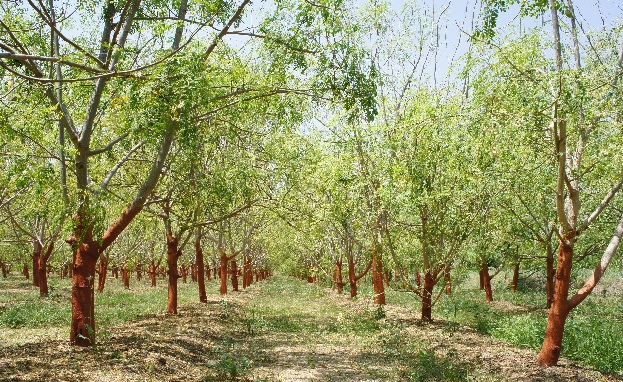Zachariah Russom, a professor and lecturer at the University of Jos, has spoken of the “miraculous powers” of Moringa Oleifera, saying its leaves are capable of curing more than 300 diseases.
Speaking at a workshop for farmers in Langtang north local government, Plateau state, organised by the institution’s Centre for Biotechnology and Genetic Engineering (CBGE), he said Nigeria is blessed with abundant agricultural potentials and therefore urged farmers to take the advantage to grow more of Moringa, “the miracle plant”.
“Moringa is a wonder plant that has proved to be a cure for more than 300 diseases in the world,” he said.
“Growing moringa plants is like growing multi vitamins at your doorstep, as science has proved that the leaves are packed with incredible nutrition that can strengthen our bodies and prevent many diseases.”
He said the leaves contain huge quantities of protein, vitamins C and A, and calcium.

Nanmwan Godwin, chairman of Langtang north local government, who was represented by secretary of the council, Mr Richard Jateau, expressed happiness with the timeliness of the workshop.
He said the workshop came at a time that Nigeria is making frantic efforts to diversify its economy, owing to falling crude oil prices in the international market.
Bashir Ajayi, a professor and director of the centre, said the aim of the workshop was to expose farmers and people at the grassroots to the usefulness of some of the plants they were growing in their surroundings.
Also known as Drumstic Tree, Moringa is reputed to be effective in combating malnutrition, especially among infants and nursing mothers.
Among a long list of reputed uses, it has been touted as a micro-nutrient liquid, a natural anthelmintic, and possible adjuvant.
Powder from the leaf of the plant is effective as soap for hand-washing when wet in advance to enable anti-septic and detergent properties from phytochemicals in the leaves.
However, there have been claims that consumption of Moringa bark, roots or flowers could be deleterious, as they contain chemicals that appear be toxic when eaten.
Copyright 2025 TheCable. All rights reserved. This material, and other digital content on this website, may not be reproduced, published, broadcast, rewritten or redistributed in whole or in part without prior express written permission from TheCable.
Follow us on twitter @Thecablestyle

Yea! A lady talked about dis moringa on TVC last 2days bt I stil dnt really know how 2make use of it
Steam it and eat with your meals just Like you’ll do with salads. You can also use it as a side dish garnished with fresh tomatoes and onions. However just like every vegetable it’s not advisable to cook it. You can drink the water you get from the steaming it.
Moringa root may cause paralysis